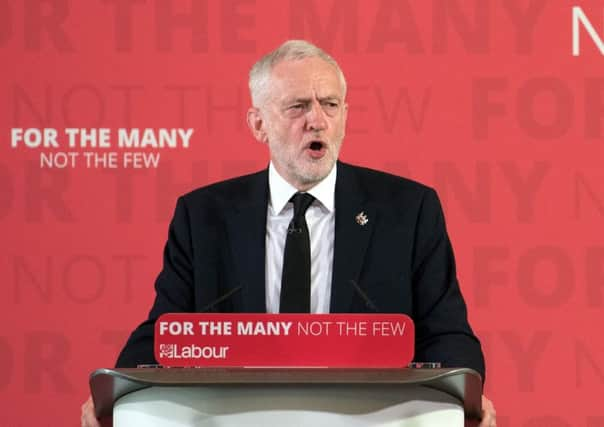Corbyn has asked a legitimate question


But if now is not the time for questions, then when is?
Mr Corbyn marked the resumption of general election campaigning by attacking the failure of the war on terror and drawing links between interventions in the Middle East and terrorist attacks at home.
His speech was condemned as “absolutely monstrous” by Foreign Secretary Boris Johnson, while Lib Dem leader Tim Farron accused Mr Corbyn of attempting to “make a political point”.
Advertisement
Hide AdAdvertisement
Hide AdSpeaking at the G7 Summit in Sicily, Prime Minister Theresa May said the Labour leader was suggesting the terror attacks are “our own fault”.
But Mr Corbyn’s speech was neither offensive nor opportunistic.
Rather he is asking the same question as many millions of voters following the attack on a pop concert in Manchester in which 22 people lost their lives: How can we make this stop? The truth is that there is no easy answer or quick fix.
But whether you agree with interventions such as the Iraq war or the bombing of Syria, there is no disputing the fact these actions have made our world less safe in the short term.
The Labour leader choose his words carefully, insisting UK involvement in foreign wars “in no way reduces the guilt” of the terrorists.
But this is not some recent conversion from Mr Corbyn in the hope of winning extra votes.
The Labour leader has been consistent in his opposition to the war on terror, as a speech he made to the 2003 anti-Iraq war demonstration, which has been widely shared on social media this week, shows.
Indeed, his prinicipled stands – some would say intransigence – on other issues have shown him at odds with the modern, fleet-footed politician who is happy to flip-flop at will.
Advertisement
Hide AdAdvertisement
Hide AdAs a horrendous week draws to a close and the general election campaign begins again in earnest, we should not forget those who lost their lives or the families they leave behind.
But we do not serve their memory by failing to ask questions about how we defeat the scourge of terrorism.